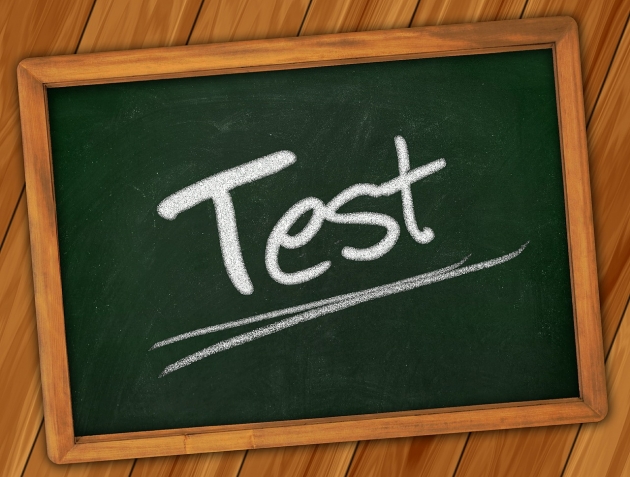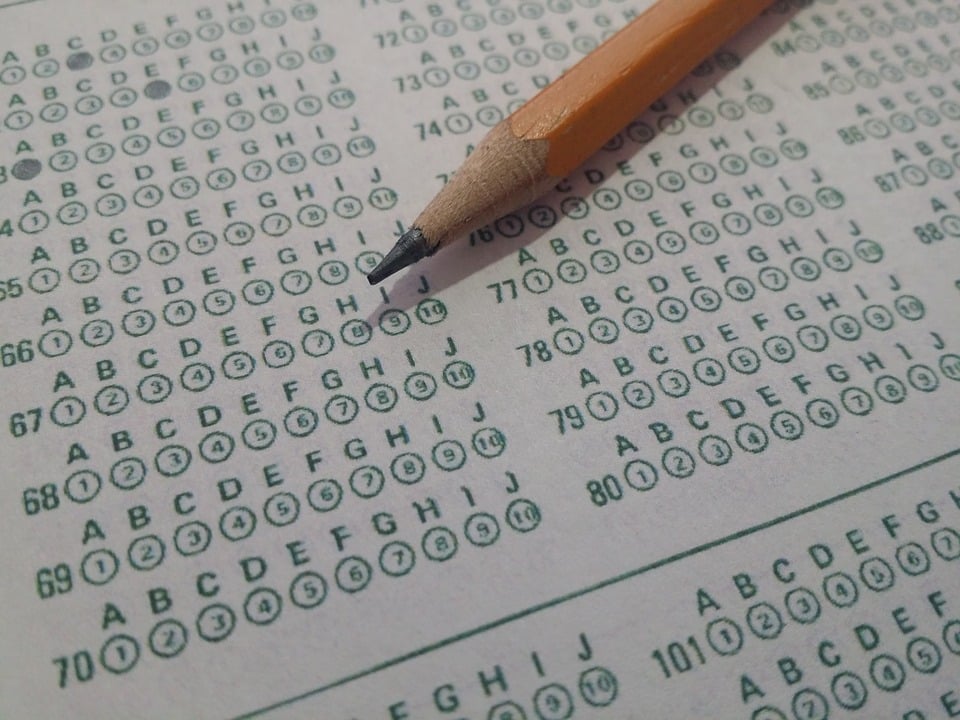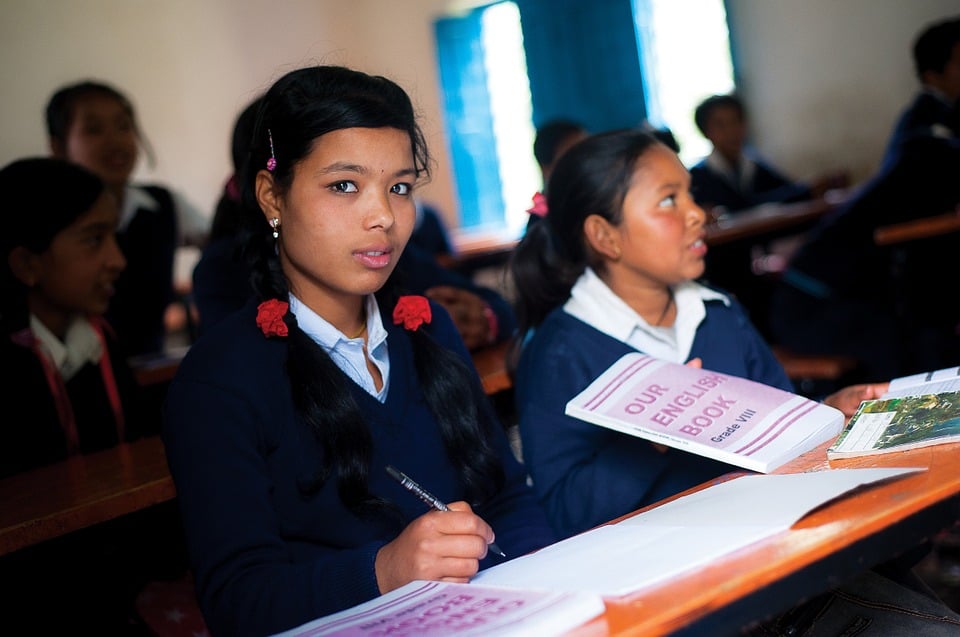Joint life insurance policy for couple...how beneficial?


Present day students are highly competitive and forever aspiring to rank first. Their main aim is to achieve top rank. Competition is a positive kick for such students. It inspires them and makes them aggressive enough to walk on the path to reach their goal.
There are a number of competitive exams for students, from school to Intermediate. If they use it as an opportunity, their merit will be sharpened further. They will be successful in the society. Let us see what they are...
Competitive exams or tests are a very convenient way to know the merit of a student. Experts say that knowledge acquired in school will transform into competence and merit only when it is put to test in competitive exams. An added attraction about competitive exams is the fact that meritorious students are encouraged with scholarships, to study further, besides testing their merit. It is a positive tonic for a smooth ride towards the goal. The main aim of competitive exams is to increase the brain power and analytical skills. National Talent Search Examination (NTSE)
National Talent Search Examination (NTSE)
National Council for Education and Research Training (NCERT) conducts this exam for Class X students. It is meant to given scholarships to meritorious students. The scholarship is given every month, to the end of the academic career of the students. Science, Maths, Social Science, Mental Ability skills are examined in this test.
The exam is conducted in two parts. The first part is a written exam at the State level. In this, Paper I is in MAT for 100 marks. Time allotted is 90 minutes. Similarly, 100 marks are allotted for SAT (Science 40, Social Sciences 40 and Maths 20 marks). Those who are selected at State-level will attend national level exam. In Paper II, 100 marks are allotted for MAT (90 minutes) and 100 marks for SAT (90 minutes). You can see website http://www.ncert.nic.in for these exams.
Kishore Vigyanik Prothsah Yojana (KVPY)
KVPY was started by the Central Government in 1999. The main aim of the exam is to encourage students towards science, engineering and medical research. Intermediate first and second year students are eligible to write this exam. The examination is based on curriculum set by CBSE and ICSE Boards.
An Aptitude test is conducted in the first part. Those applicants who are considered eligible are selected to write the exam. Candidates who are short-listed from the Aptitude Test are selected for an interview. Those who are selected after this, will win scholarships. The winners are eligible for admission into 5-year Integrated M.S. Course offered by Indian Institute for Science Education and Research. Visit http://kvpy.iisc.ernet.in for details. Dr. Homi Bhabha Balvaignyanik Spardha (HBBVS)
Dr. Homi Bhabha Balvaignyanik Spardha (HBBVS)
This competitive exam began in 1981 under the auspices of Mumbai Teachers' Association. The aim of this exam is to select brilliant science students and encourage them towards science topics and research. Only Class VI and Class IX students are eligible to write this exam. The second part of the exam is a test in practicals. In the third part, an oral test and an interview are conducted before submitting an Action Research Report. Visit http://www.msta.in/ for more information.
National Science Olympiad (NSO)
Science Olympiad Foundation (SOF) conducts this exam. Ranks are allocated as per the marks obtained in the exam. All kids from Class I to Class XII can participate in this. Exam is conducted based on Science and Maths syllabus of CBSE and ICSE boards of various states.
In the first part exam is conducted at the school level. Later, exams are conducted in city and states levels and later in international levels. SOF conducts another exam called National Cyber Olympiad. For full details, visits http://www.sofworld.org.
Unified Cyber Olympiad (UCO)
UCO is conducted every year. It tests the mental ability, logical reasoning and computer skills of the students. All students from Class VIII to Class XII can participate in this exam. Questions are from CBSE, ICSE and from state board syllabus.
The selection is in two parts. Aptitude exam is conducted at school level. Candidates are selected from every class, to write the next level. Those who are selected at school level are selected at state level. Toppers are selected from this. Visit http://www.unifiedcouncil.com for details.
National Talent Search Exam (NTSE)
Unified Council Products and Services conducts these exams for making the students more competent in the subjects learnt in school. In order to recognise the strengths and weaknesses of students, this institution conducts several exams for students from Class I to Class XII. Students not only from India but also from abroad write NSTE exams. The exam is based on CBSE syllabus.
The exam is in two parts, to give scholarships to students. Based on a written test, selections are made at state and union territory level. NCERT conducts the exam in the second part. Students who have scored enough marks are eligible for scholarships. visit http://www.unifiedcouncil.com for more details. Maths Talent Search Exam (MTSE)
Maths Talent Search Exam (MTSE)
MTSE is conducted by Indian Institute for Studies in Mathematics. In this exam, focus is on mental ability, mathematical reasoning, self-confidence and speed. Students from Class III to Class IX can write this exam. Syllabus is again CBSE and ICSE. Top rankers are selected from each class and scholarships are given. Details can be had at http://www.ganithasasthraparishad.org.
International Mathematics Olympiad (IMO)
The main aim of the exam is to examine the Mathematical skills and merit of the students in the country and abroad. Students from Class I to Class XII are eligible for the exam. It is based on ICSE and CBSE syllabus. Top rankers are selected for scholarships. Visit https://www.imo-official.org for details.
National level Science Talent Search Exam (NLSTASE)
The exam is conducted by Unified Council. It is one of the prominent competitive exams. Students from Class II to Class XII might write this exam. The exam is in Maths, Social Science and Mental Ability. High School students have exam in Physics, Chemistry, Maths and Biology. It is 100 questions, 100 marks in 90 minutes. The selection is in two parts. State-level exam is conducted in the first part. Those who are selected will have to attempt the second part at national level. Visit https://www.unifiedcouncil.com for details. National Standards Exam in Junior Science (NSEJS)
National Standards Exam in Junior Science (NSEJS)
Indian Association of Physics Teachers (IAPT), Homi Baba Centre For Science Examination (HBCSE) jointly conduct NSEJS. Students from Class I to Class X are eligible to take part. While the syllabus is ICSE and CBSE, the exam focuses mainly on Science and General Content. First part is at school level. Successful students should attempt a national level exam. Visit http://www.iapt.org.in.
National Standards Examinations in Physics (NSEP)
This too is conducted jointly by Indian Association of Physics Teachers and Homi Baba Centre for Science Education. Intermediate students are eligible. The exam is based on CBSE Physics syllabus. Meritorious students who are successful in the school-level examination can write this exam. The test is at the national level. For details visit http://iapt.org.in.
Zonal Information Olympiad (ZIO)
Indian Association for Research in Computer Science (IARCS) conducts this exam. It is a competitive exam at the national level. The main aim of the exam is to select exceptional students in algorithms computing. Students from Class VIII to Class XII can write this exam. Paper is set from CBSE syllabus. First part is at the state and national level. Top rankers in the country will have to compete at the national level. Details can be viewed at http://www.iarcs.org.in.
International information Olympiad (IIO)
This is conducted to test the efficiency at computers. It is conducted annually by Computer Literary Foundation. Students from Classes I to Classes VIII can write this exam. Paper is set from CBSE,ICSE and State Board syllabus. The successful candidates at school level exam will have to attend exam at national and international levels. Details can be learnt from http://www.iarcs.org.in. National Cyber Olympiad
National Cyber Olympiad
It is a national level exam conducted by Science Olympiad Foundation. Students studying Class II to Class XII might write this exam. Exam is set from CBSE and ICSE syllabus. Scholarships are given to rankers. More details can be had from http://www.sofworld.org/nco.
National Interactive Math Olympiad (NIMO)
National Council for Education, Research and Training (NCERT) conducts this exam. It is very popular. Students from Class V to Class XII can write this exam. Maths, Science and Mental Ability are tested. Written exam is conducted at state and union territory level. Fifty questions are set for 50 marks. Time is 60 minutes. Those who get through are eligible to write a national level exam. Visit http://www.eduhealfoundation.org.
National Biotechnology Olympiad (NBTO)
Eduheal conducts this exam. The aim is to test the knowledge in biotechnology. Class V to Class XII students write this exam. The syllabus is from CBSE, ICSE and state boards. The paper has 50 questions for 50 marks to be written for 60 minutes. State-level exam is conducted in the first part. Those selected will have to answer national level exam. Visit http://www.eduhealfoundation.org.
Geogenius
Indian Geography Olympiad exam. It is conducted to test the knowledge of geography. Students from Class II to Class XII can write this exam. The written test is from CBSE syllabus. Toppers are selected from an exam at State level. Later, national exams are written. Details can be had from http://www.geogeninusindia.com. Knowledge Olympiad (KO)
Knowledge Olympiad (KO)
It is conducted by Knowledge Society of India. Question papers are set from Maths and Science subjects from CBSE, ICSE and state board syllabus. Students generic knowledge is tested. Two main exams are conducted in KO. Mathematics Olympiad and National Knowledge Olympiad. Visit http://www.aisect.org/
Sir CV Raman Young Genius Awards National Level Science Talent Search Examination
The exam is conducted at national level by Viswabharati Foundation. Those studying from Class IV to Class X are eligible for this exam. The exam is conducted for 40 marks in Mathematics, 40 marks in Science and 20 marks in General English. Students, who are toppers in their respective schools, will receive awards. Details can be viewed at http://www.suchirindiafoundation.org.
Assessment of Scholarship Skills through Educational Training (ASSET)
Educational Institute conducts the exam annually. Class I to Class XII students are eligible. It is as per CBSE and ICSE syllabus. English, Maths, Science are core subjects. Social Studies and Hindi are optional. Toppers in school level are awarded. http://www.ei-India.com.
International Assessment for Indian Schools (IAIS)
Students studying Class III to Class XII are eligible to write IAIS. It is a tough test. The exam is conducted as per CBSE, ICSE and State boards syllabus. Exams are conducted in English, Computer Science, Maths and Science subjects. http://www.macmillaneducation.in/iais. Why take part in Competitions and Olympiads?
Why take part in Competitions and Olympiads?
Competitive exams help students to gain additional knowledge. They will get the courage to face the questions in exams, the ability to answer and self-confidence. Experts say that competitions sharpen the skills of students. Students can assess their merit and competence, at the school, town, state and national levels through Olympiads.
The awards are like a pat on the back for students, encouraging them to reach higher. Cash awards, medals, gifts and certificates build self-confidence among students. NSTSE, NTSE, JSTSE, NSO, IMO etc., increase the students' IQ and logical and analytical skills. They are helpful to face JEE and NEET type of exams.



















